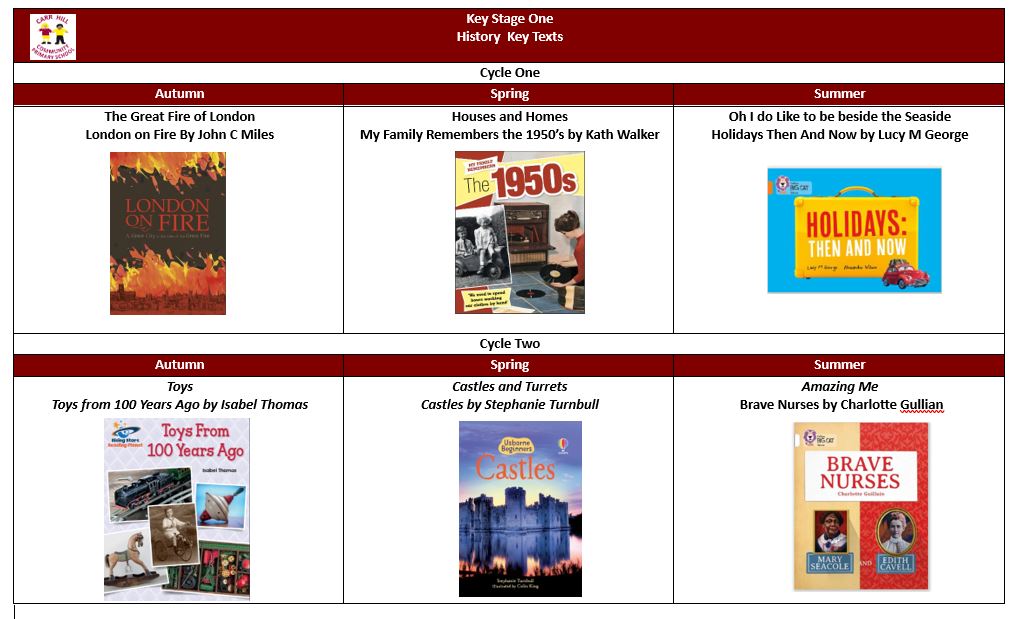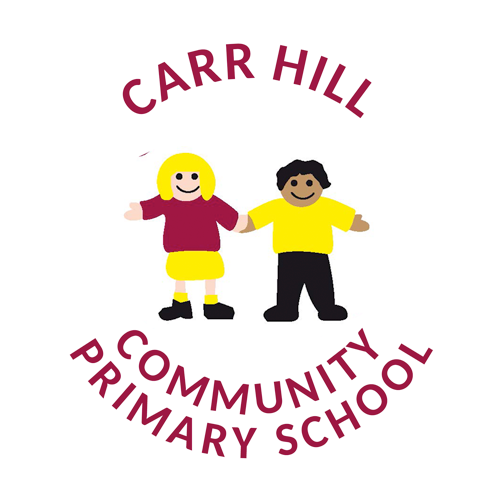Mrs McClean leads the teaching of History in School.
Our Intent for History
Our History curriculum follows the outcomes of the DFE’s National Curriculum (2014) in England and the understanding the world and Maths (SSM) sections of the ‘Statutory Framework for the Early Years Foundation Stage’ (2014).
Our curriculum aims to develop;
- children’s understanding of historical events; in Britain, local events and those in the wider world.
- children’s understanding of chronology and changes within periods of time.
- children’s vocabulary; with clear language progression.
- children’s understanding of historical concepts and enquiries.
Our Implementation for History
History is taught through our creative curriculum which is topic led. History is embedded within all our topics however some may specifically have History as their unit driver. Topics are started with a ‘Wow’ activity to grip the children’s imagination. History is taught in a range of ways throughout our school including; working with timelines, stories/recounts, drama and role play. We also make links to History through our Literacy texts, guided reading sessions and chronology language used with Maths.
All children have access to a wide range of historical texts and internet access within every classroom to help research our history topics. We plan visits to enhance children’s learning and to give them real hands on experience. We also regularly invite people of interest, or expertise, into school to talk to our children or to run workshops.
The Impact of History
Through the teaching of History children will develop their knowledge of key historical events and gain an understanding of local history. Children will have chronological understanding and be able to use vocabulary that is specific to chronology. This will be progressive as the children move through the school. Children will be able to use questioning to deepen their understanding and discuss the use of appropriate and reliable sources of evidence. Children will be able to talk about key historical people or periods of time and their significance. Children will be able to talk about how aspects of life have changed and make connections or draw contrasts between what they have previously learnt.
Purpose of Study
A high-quality history education will help pupils gain a coherent knowledge and understanding of Britain’s past and that of the wider world. It should inspire pupils’ curiosity to know more about the past. Teaching should equip pupils to ask perceptive questions, think critically, weigh evidence, sift arguments, and develop perspective and judgement. History helps pupils to understand the complexity of people’s lives, the process of change, the diversity of societies and relationships between different groups, as well as their own identity and the challenges of their time.
Aims
The national curriculum for history aims to ensure that all pupils:
- know and understand the history of these islands as a coherent, chronological narrative, from the earliest times to the present day: how people’s lives have shaped this nation and how Britain has influenced and been influenced by the wider world
- know and understand significant aspects of the history of the wider world: the nature of ancient civilisations; the expansion and dissolution of empires; characteristic features of past non-European societies; achievements and follies of mankind
- gain and deploy a historically grounded understanding of abstract terms such as ‘empire’, ‘civilisation’, ‘parliament’ and ‘peasantry’
- understand historical concepts such as continuity and change, cause and consequence, similarity, difference and significance, and use them to make connections, draw contrasts, analyse trends, frame historically-valid questions and create their own structured accounts, including written narratives and analyses
- understand the methods of historical enquiry, including how evidence is used rigorously to make historical claims, and discern how and why contrasting arguments and interpretations of the past have been constructed
- gain historical perspective by placing their growing knowledge into different contexts, understanding the connections between local, regional, national and international history; between cultural, economic, military, political, religious and social history; and between short- and long-term timescales.
Key stage 1
Pupils should develop an awareness of the past, using common words and phrases relating to the passing of time. They should know where the people and events they study fit within a chronological framework and identify similarities and differences between ways of life in different periods. They should use a wide vocabulary of everyday historical terms. They should ask and answer questions, choosing and using parts of stories and other sources to show that they know and understand key features of events. They should understand some of the ways in which we find out about the past and identify different ways in which it is represented. In planning to ensure the progression described above through teaching about the people, events and changes outlined below, teachers are often introducing pupils to historical periods that they will study more fully at key stages 2 and 3.
Pupils should be taught about:
- changes within living memory. Where appropriate, these should be used to reveal aspects of change in national life
- events beyond living memory that are significant nationally or globally [for example, the Great Fire of London, the first aeroplane flight or events commemorated through festivals or anniversaries]
- the lives of significant individuals in the past who have contributed to national and international achievements. Some should be used to compare aspects of life in different periods [for example, Elizabeth I and Queen Victoria, Christopher Columbus and Neil Armstrong, William Caxton and Tim Berners-Lee, Pieter Bruegel the Elder and LS Lowry, Rosa Parks and Emily Davison, Mary Seacole and/or Florence Nightingale and Edith Cavell]
- significant historical events, people and places in their own locality.
Key stage 2
Pupils should continue to develop a chronologically secure knowledge and understanding of British, local and world history, establishing clear narratives within and across the periods they study. They should note connections, contrasts and trends over time and develop the appropriate use of historical terms. They should regularly address and sometimes devise historically valid questions about change, cause, similarity and difference, and significance. They should construct informed responses that involve thoughtful selection and organisation of relevant historical information. They should understand how our knowledge of the past is constructed from a range of sources. In planning to ensure the progression described above through teaching the British, local and world history outlined below, teachers should combine overview and depth studies to help pupils understand both the long arc of development and the complexity of specific aspects of the content.
Pupils should be taught about:
- changes in Britain from the Stone Age to the Iron Age
- the Roman Empire and its impact on Britain
- Britain’s settlement by Anglo-Saxons and Scots
- the Viking and Anglo-Saxon struggle for the Kingdom of England to the time of Edward the Confessor
- a local history study
- a study of an aspect or theme in British history that extends pupils’ chronological knowledge beyond 1066
- the achievements of the earliest civilizations – an overview of where and when the first civilizations appeared and a depth study of one of the following: Ancient Sumer; The Indus Valley; Ancient Egypt; The Shang Dynasty of Ancient China
- Ancient Greece – a study of Greek life and achievements and their influence on the western world
- a non-European society that provides contrasts with British history – one study chosen from: early Islamic civilization, including a study of Baghdad c. AD 900; Mayan civilization c. AD 900; Benin (West Africa) c. AD 900-1300.
Progression Steps
Planning
Key Stage One
Key Stage One History Key Texts

Lower Key Stage Two
Upper Key Stage Two
